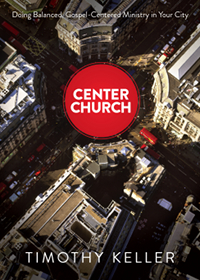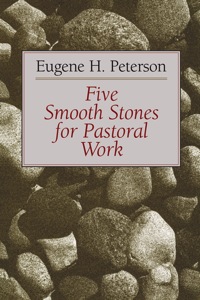Often discussions of what a church should be and do and look like are informed by references to the last few verses of Matthew’s gospel, a portion known as the “Great Commission.”
And Jesus came and said to them, “All authority in heaven and on earth has been given to me. Go therefore and make disciples of all nations, baptizing them in the name of the Father and of the Son and of the Holy Spirit, teaching them to observe all that I have commanded you. And behold, I am with you always, to the end of the age.” (Matthew 28:18-20)
This comes to us as a command to engage the non-Christian world with the truth of Him in whom all authority resides. It focuses the attention of disciples, to whom the commission is given, to reproduce themselves, to make more disciples. And it is so succinct that it is often extracted and made the priority for the church, with evangelism as its core. It easily resolves to a motivational slogan such as “His last command our first concern.”
Oddly, though, using these verses as motivation is apparently a modern innovation.
Anglican scholar Michael Green, in his book Evangelism in the Early Church, points out the (to our ears) oddity that these words of Jesus, influential though they were in other ways, were not invoked as a motivation for Christian outreach.
“In point of fact, it is quoted very little in the writings of the second century.” (239)
This was a time when the task of evangelism and of making disciples was fraught with serious difficulty.
“Wherever they went, Christians were opposed as anti-social, atheistic, and depraved. Their message proclaimed a crucified criminal, and nothing could have been less calculated than that to win them converts…. To Jew and Gentile alike Christians were offensive, on account both of the doctrines and the behaviour credited to them. All this they had to live down if they were going to win anybody at all for Jesus Christ.” (29)
If not Jesus’ ‘last command’ then what drove them to persevere against such odds? Green suggests it was rather love and gratitude. It was grace, not law, that moved them.
“They did it [evangelism] because of the overwhelming experience of the love of God which they had received through Jesus Christ.” (236)
People inevitably pursue, and point others to, what they love. The “Great Commission” is a great summary statement of the direction Jesus expects his church to move. What motivates the church to respond is never the command itself but the love of the one who issued it
It is the heart that is freed that is freed to follow, and to proclaim, the Liberator.
Long my imprisoned spirit lay
fast bound in sin and nature’s night;
thine eye diffused a quick’ning ray;
I woke, the dungeon flamed with light:
my chains fell off, my heart was free:
I rose, went forth, and followed thee.
Amazing love! How can it be
that thou, my God, shouldst die for me? (Charles Wesley)
When the church is misdirected or moribund what is needed are not more sermons detailing our Lord’s final command. Better would be more outlining and revealing his amazing love.

 Issues that matter seem to be landing as profusely and as suddenly as the frogs in Paul Thomas Anderson’s remarkable film
Issues that matter seem to be landing as profusely and as suddenly as the frogs in Paul Thomas Anderson’s remarkable film 

 We need to hear Keller’s challenge to lead the church well, but not without Peterson’s balancing caution that “nothing in pastoral work is more liable to Pelagian tendencies than the work of giving leadership to the community of faith” (
We need to hear Keller’s challenge to lead the church well, but not without Peterson’s balancing caution that “nothing in pastoral work is more liable to Pelagian tendencies than the work of giving leadership to the community of faith” (